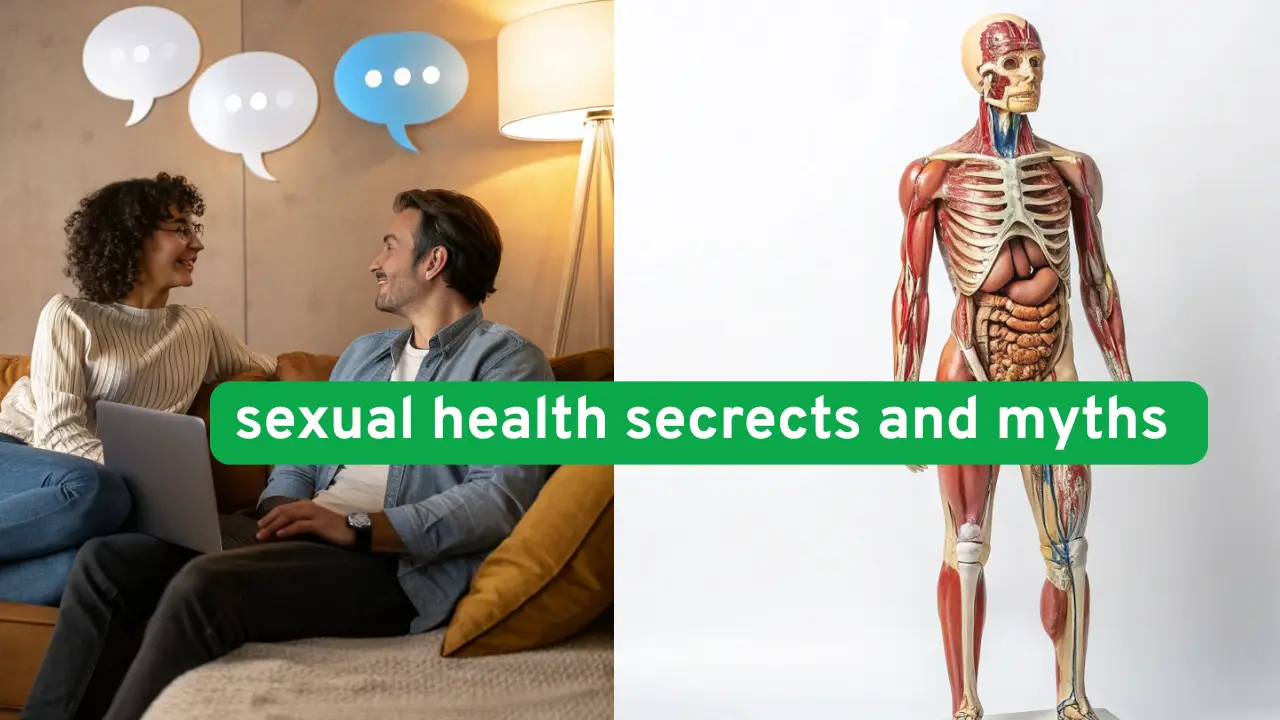Sexual health is a deeply important yet often neglected topic. It’s not just about physical intimacy—it’s about safety, emotional well-being, respectful relationships, and the freedom to understand and express your identity without fear or shame. Below are ten essential insights, each explained in depth, that everyone should know in order to lead a healthier, more informed life.
1. Sexual Health Is About More Than Just Sex

Many people think sexual health only involves sexual activity or reproduction, but in truth, it covers a wide range of physical, emotional, and psychological aspects of life. It includes the ability to enjoy respectful relationships, to feel safe in your own body, and to access accurate information about your options. It also means having the confidence and autonomy to make decisions about your body and your experiences, without being pressured or judged.
2. Consent Is the Foundation of Every Healthy Relationship

Consent is not just a formality—it is the foundation of any respectful and safe intimate relationship. It means freely agreeing to something without fear, manipulation, or pressure. True consent is enthusiastic, informed, and reversible at any time. It’s important for both partners to understand that silence or lack of resistance does not equal permission. Teaching and practicing consent creates a culture of respect and safety.
3. Communication Makes Intimacy Stronger

Honest and open communication is essential in any relationship, especially when it comes to intimacy. Talking about boundaries, expectations, likes, and dislikes builds trust and helps avoid misunderstandings or hurt. It can feel awkward at first, especially in cultures where these conversations are considered taboo, but the more we normalize them, the healthier our relationships become.
4. Practicing Safe Sex Protects Everyone Involved

Using protection such as condoms, dental dams, or other barrier methods significantly reduces the risk of sexually transmitted infections (STIs) and unplanned pregnancies. Safe sex is not just about preventing problems—it’s about showing respect for yourself and your partner. It empowers people to make informed decisions and ensures that pleasure and responsibility go hand in hand.
5. Routine Check-ups Are a Form of Self-Respect

Just like you would get regular check-ups for your heart or teeth, your reproductive and sexual health needs attention too. Visiting a doctor or clinic for screenings and health advice doesn’t mean something is wrong—it means you’re taking control of your health. Early detection of infections or issues can prevent long-term complications and promote peace of mind.
6. Everyone’s Sexuality Is Different—And That’s Okay

There is no single “normal” when it comes to sexuality. People have different preferences, orientations, and experiences, all of which are valid. What matters most is that those experiences are safe, consensual, and respectful. Understanding and accepting your own identity, and respecting others’ identities, creates a more inclusive and emotionally safe society.
7. Mental and Emotional Health Affect Sexual Well-being

Sexual health isn’t just physical—it’s closely tied to mental and emotional well-being. Stress, anxiety, depression, or past trauma can all impact how someone feels about intimacy, trust, and their body. It’s important to acknowledge these emotions and seek help if needed. Therapy, counseling, or even talking to someone you trust can help process these feelings in a healthy way.
8. Believing in Myths Can Be Dangerous

Misinformation around sexual health is still widespread. Common myths like “you can’t get an STI the first time” or “you can tell if someone has an infection by looking” can lead to risky behavior. Relying on verified sources and scientific facts is crucial. Education is not just a school subject—it’s a lifelong tool for protecting your health and making informed choices.
9. Being Educated Gives You Power
Knowledge truly is power, especially when it comes to your body. Knowing how protection works, understanding how consent functions, recognizing signs of unhealthy behavior—these things help you navigate life with more confidence. Education reduces shame and fear, replacing them with clarity and empowerment. And when you’re informed, you’re better equipped to support others too.
10. It’s Okay to Ask for Help

One of the most powerful things you can do for your sexual health is to ask for help when needed. Whether you’re confused about something, dealing with discomfort, or struggling emotionally, speaking to a professional can make a huge difference. There’s no shame in seeking advice—it’s a sign of strength and self-respect. Help is out there, and you deserve access to it.
💬 Conclusion
Sexual health is about dignity, choice, and education. The more we talk about it with honesty and maturity, the more we remove fear and misinformation. It’s time we treat sexual health as a part of everyday wellness—and start having real, respectful conversations around it.

